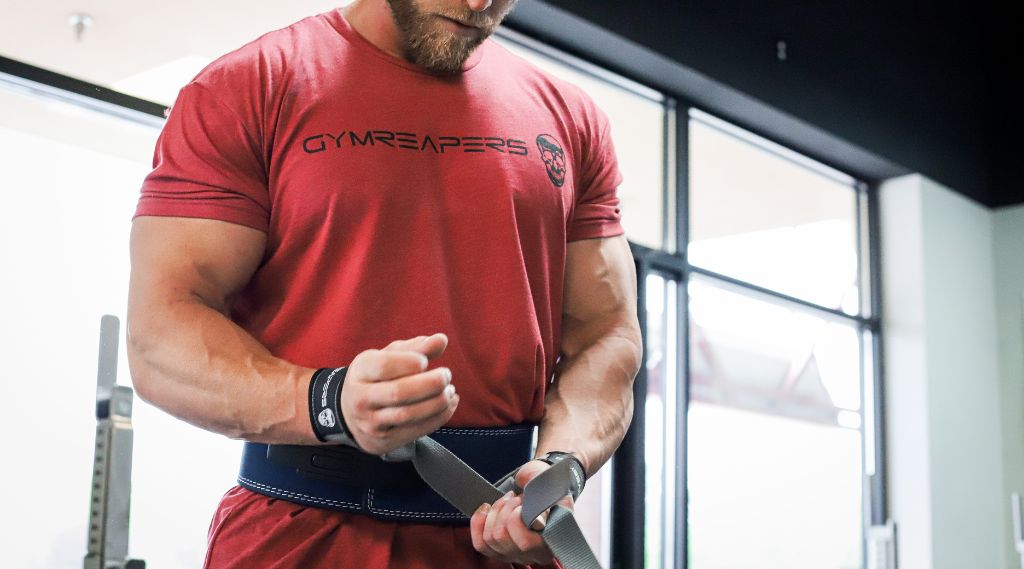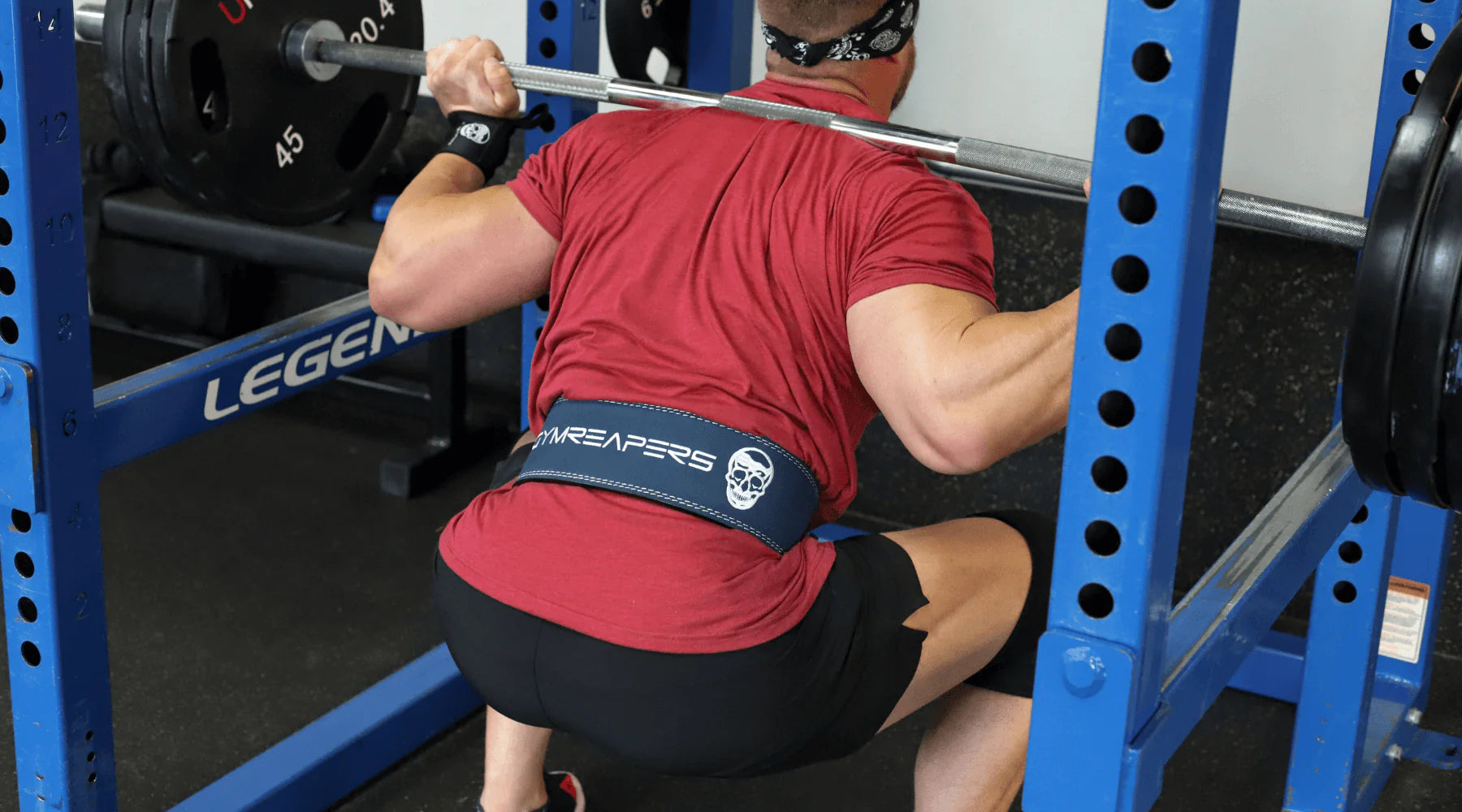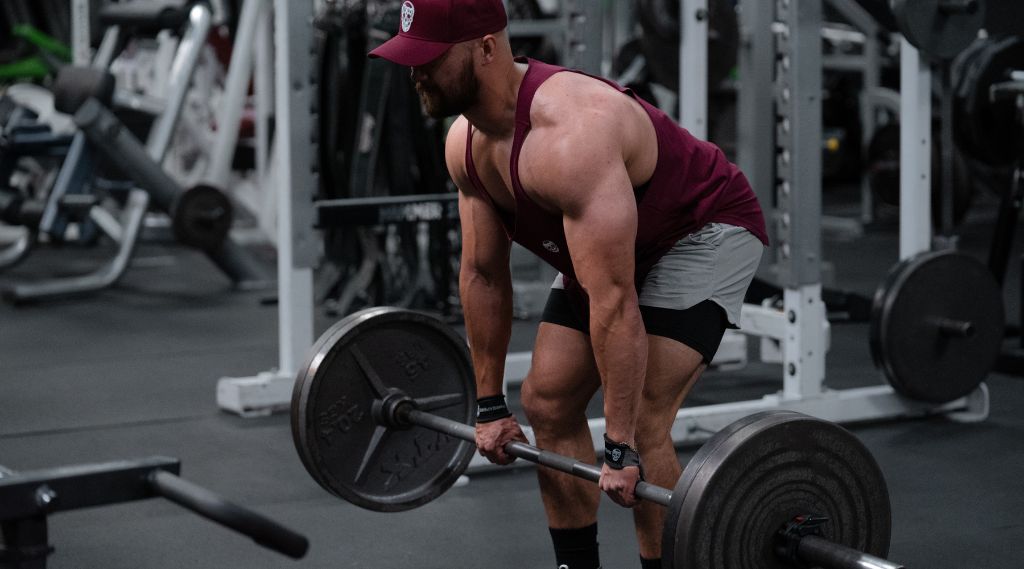As a personal trainer, part of my job is to help my clients pick the best training equipment, so I’m often asked which material would be best for lifting straps: leather, nylon, or cotton.
Cotton lifting straps are the best option for most lifters because the material is softer than leather and nylon, making these straps more comfortable and less likely to cause skin irritation or wrist discomfort. Cotton also absorbs moisture, reducing the risk of slippage as you start to sweat.
That said, there are pros and cons to leather, nylon, and cotton straps so it’s important to explore each option before deciding which type of strap would best suit your needs.
Key Takeaways
Types Of Straps: Overview

Most lifting straps are made of the following materials: leather, cotton, or nylon.
Each material has pros and cons affecting the training experience, grip support, and overall comfort. Here is a quick table that compares the three materials:
|
Material |
Leather |
Cotton |
Nylon |
|
Durability |
Best |
Better |
Good |
|
Grip Support |
Good |
Best |
Better |
|
Comfort |
Better |
Best |
Good |
|
Break-in Period |
YES |
NO |
NO |
|
Sweat Absorption |
Better |
Best |
Good |
|
Price |
$$ |
$ |
$ |
|
Craftsmanship |
Best |
Better |
Good |
Leather Lifting Straps
Leather lifting straps are relatively popular, particularly among lifters who value good design and craftsmanship. The material is incredibly durable and provides decent comfort during heavy training without irritating the skin.
However, one drawback is that leather is more rigid than cotton or nylon and needs a break-in period, similar to how you would break in a leather lifting belt.
Benefits
- Great craftsmanship
- Premium feel and look
- Options to get them custom made
- Excellent durability
- They feel good on the skin and don’t lead to irritation
Drawbacks
- Require a break-in period because of the material’s toughness
- Don’t perform better than cotton or nylon straps
- Absorb sweat and can start smelling bad after a while
Who Should Use Them
Leather lifting straps are made of high-quality materials. They look great and are a fantastic option for lifters who want straps that won’t stretch out over time, making them ideal for heavy weight training.
Leather wraps would be good for:
- Powerlifters
- Weightlifters
- Strongman Athletes
These straps aren’t necessarily better than other types in terms of grip support, but the high-quality leather does feel good on the skin and is unlikely to cause bruising or irritation.
Cotton Lifting Straps

Cotton lifting straps are the go-to option for many lifters because they are affordable, durable, and more comfortable than leather or nylon. Thanks to their excellent moisture absorption, cotton straps can also prevent slippage caused by sweaty palms.
“Cotton lifting straps are popular because they are quite comfortable to wear. This is an important consideration because lifting with wrist straps can be a bit uncomfortable in general since the loop around your wrist may pull and tug at your skin. When compared to a nylon strap, the cotton material definitely feels more comfortable to use.”
Benefits
- Affordable
- Great for light and heavy training
- Feel comfortable on the wrists
- Low risk of chafing or skin irritation
- Great sweat absorption
Drawbacks
- It might not be as durable as leather or nylon straps
- Some cotton straps can stretch under heavy load
Who Should Use Them
Cotton lifting straps are comfortable to wear and are excellent for all lifters looking for good grip support and protection from calluses. The material feels good on the skin and is unlikely to cause chafing or irritation.
However, low-quality cotton is likelier to stretch under load, which means cheap lifting straps aren’t ideal for strong trainees who routinely grip hundreds of pounds. In other words, cotton is a good starting point, but get yourself a pair from a reputable brand to get maximum durability as you get stronger.
I would recommend cotton lifting straps for:
- Beginners
- General Fitness
- Olympic Weightlifters
- Crossfit Athletes
Related Articles: Do Lifting Straps Prevent Calluses? Yes, Here's How
Nylon Lifting Straps
Nylon lifting straps are a standard option among strength athletes because they do a good enough job. The material doesn’t stretch under load and provides decent grip support; however, the material is rigid and more likely to cause skin irritation when handling big weights.
Additionally, nylon doesn’t absorb sweat well, making it more likely to cause slippage as you start to sweat.
- Related: How To Use Lifting Straps
Benefits
- Non-stretch material
- Good grip support on heavy sets
- A popular option, trusted by many lifters
Drawbacks
- It doesn’t feel as comfortable as cotton
- It can lead to some skin irritation and wrist discomfort
- Poor sweat absorption
Who Should Use Them
Nylon lifting straps are popular among powerlifters, bodybuilders, Olympic weightlifters, and strongmen. The material doesn’t stretch under load and offers great grip support on heavy sets.
However, nylon is harder than cotton and doesn’t feel as comfortable during training. It can even lead to some skin irritation or wrist discomfort, so if you value comfort during training, nylon might not be the best option.
What Material Is Best For Lifting Straps?

I consider cotton lifting straps the best option for most lifters because they are versatile and comfortable, and they provide a secure grip they provide during heavy lifts. The material is also softer, more breathable, and moisture-wicking, which can prevent slippage for lifters with sweaty palms.
Additionally, high-quality cotton from a reputable brand is durable, so it can last for many years.
I also appreciate that cotton straps are environmentally friendly because of the material’s biodegradability and the lack of plastic waste.
Finally, cotton straps are typically more affordable, especially when compared to leather, making them the ideal pick for lifters looking to save some money.
Best Cotton Wraps: Gymreapers

As far as the best cotton lifting straps go, there’s no better option than Gymreapers. These straps blend comfort, durability, and grip support, leading to a safer and more enjoyable training experience.
The Gymreapers lifting straps are made of high-quality cotton and are padded with neoprene, which supports your grip and prevents slipping. You also get 18” of fabric length, which is enough to loop your straps securely over the bar or dumbbell.
Folks interested in weightlifting can consider the Olympic lifting straps by Gymreapers. These are also made of high-quality cotton and are designed to support your grip during heavy and explosive barbell lifting.

As an added benefit, you never have to worry about their durability because the Gymreapers’ straps come with a lifetime replacement guarantee.
Frequently Asked Questions
What are most straps made of?
Most lifting straps are made of cotton, leather, or nylon. The last option is popular among lifters, but cotton offers unique benefits like better moisture absorption and greater comfort during training.
What makes a good lifting strap?
A good lifting strap is one that supports your grip, prevents calluses, feels comfortable even during your heaviest sets, and doesn’t stretch or give out under load.
Are leather straps better than nylon?
Both types of straps support your grip, are incredibly durable, and will last for years. Leather tends to be stiffer and typically requires a break-in period, whereas Nylon doesn’t feel as stiff but can lead to some skin irritation.
You wouldn’t go wrong with either option, so it mostly comes down to your preferences, budget, and design preferences (if any).











Hinterlasse einen Kommentar
Alle Kommentare werden vor der Veröffentlichung geprüft.
Diese Website ist durch hCaptcha geschützt und es gelten die allgemeinen Geschäftsbedingungen und Datenschutzbestimmungen von hCaptcha.